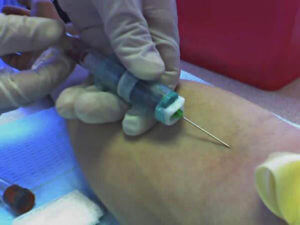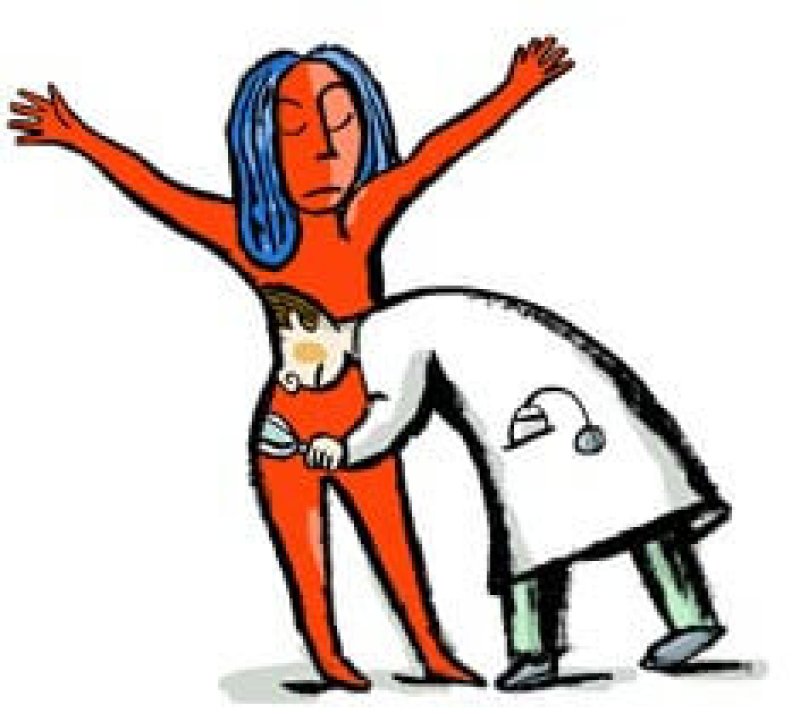Only weeks ago, Google spread the news of its fledgling research project that aims to diagnose cancers, impending heart attacks and strokes at a much earlier stage than is currently possible.
Early detection: That’s a good thing, isn’t it? There can’t possibly be downsides to that.
Unfortunately, in some situations — cancer, in particular — early detection can be more harmful than the disease it’s trying to detect.
Take the situation in South Korea, where there the incidence of thyroid cancer is now 15 times higher than it was 20 years ago. Is there really that much more thyroid cancer in South Korea?
In 1999, the government initiated a national health-screening program focused on reducing cancer and other common diseases. Although thyroid cancer screening was not included in the program, all it requires is a simple test and so hospitals and doctors offices promoted thyroid cancer screening as an inexpensive add-on to the government program.
Unfortunately, the proliferation of screening tests for thyroid cancer has become a problem says Gilbert Welch, a professor of medicine and director of the Center for Medicine and the Media. He is the lead author of a study on the topic published last week in the New England Journal of Medicine. South Korea’s new screening regime has been picking up “small papillary thyroid cancers” — most of these typically would never reveal themselves during a person’s life or cause harm, Welch says.
But large-scale thyroid screening has created new dangers associated with these papillary thyroid cancers. With a diagnosis, people became scared and the medical profession is more likely to engage in unwarranted treatment. The majority of patients given diagnoses of thyroid cancer have their thyroid gland removed. Without the gland, patients may need lifelong thyroid replacement therapy. While doctors calibrate their therapy, patients can suffer from loss of energy, weight fluctuations and insomnia.
The surgery also has other less common complications. In South Korea and the United States about 10 percent of post-op patients have problems with calcium metabolism and about 2 percent experience vocal cord paralysis. And, as with any surgery, there can be life-threatening effects — in about two of every 1,000 thyroid cancer operations, the patient dies. All this for a cancer that causes no harm.
The U.S. may be on track to follow in South Korea’s footsteps. After a concerted effort to promote screening, thyroid cancer incidence is up threefold since 1975. Will the States see similar treatment trends? Probably, if the trajectory of prostate cancer screening and treatment in this country is any indication.

More than 20 years ago, doctors began routinely testing for prostate cancer with a blood test—the PSA—that is able to detect minute quantities of prostate-specific antigen. A lot of men have “abnormal” PSAs, far more than would ever suffer from prostate cancer. Many were treated with radical surgery or radiation and a third of these suffered side effects of treatment. A small number of patients even died from the treatment.
Moreover, midlife screening for prostate cancer only lowers a man’s risk of dying from the cancer from 3 percent to 2.4 percent, according to a study published last August in The Lancet. Of those diagnosed with prostate cancer, 30-50 percent would never be harmed by their cancer according to the study’s lead author urologist Dr. Fritz H. Schröder from Erasmus University Medical Center in the Netherlands. And Schröder takes the result even further to say:
This overdiagnosis is unacceptable because it also leads to treatment. That’s why there is consensus worldwide, with very few exceptions, that the time has come not to recommend population-based screening.
The “overdiagnosis” problem is greatest for thyroid and prostate cancer, but also exists for cancers of the lung, breast, skin and kidney, according to Welch.
At first, it would appear that the large-scale screening itself is not the problem, rather the overzealous and unnecessary diagnosis and treatment that occurs in the wake of such screening. But consider the vast amount of human effort, money, and time that screening takes each year: resources that would be more wisely focused on research into cancer prevention or treatment.
But the major concern is what happens to people who’ve been diagnosed with a cancer that really won’t cause them any harm. For prostate cancer, the test can put them on treatment path that will be far more dangerous than their cancer. For all cancers, the diagnosis can create vast amounts of unnecessary emotional angst for both the patients and their families. As Welch says in an interview with BU Today:
Simply being given a needless diagnosis can adversely affect your health. The truth is that health is more than a physical state of being; it’s also a state of mind. It’s hard to feel well when we doctors are constantly saying something is wrong.
It’s a very short step from the emotional damage of overdiagnosis to the physical risks of overtreatment, Welch says:
The problem is, we all harbor abnormalities, and our tests are increasingly able to find them, yet most of these abnormalities will not go on to cause disease. But because clinicians don’t know which will and which will not, we tend to treat everybody. That means we are treating those who cannot benefit because there’s nothing to fix, and these people can be harmed.
Which brings us back to Google: will even more sensitive early-detection technology help people or exacerbate the problem of overdiagnosis? The answer may depend on which disease we’re talking about. Overdiagnosis is currently a problem for several cancers, but Google’s technology also promises early detection of heart disease. Detecting the first signs of heart disease, before it has progressed to low blood pressure or an irregular heart beat, will almost always help a patient. It’s important to realize that screening can be both useful and important for some conditions, including some cancers.
But even when early screening proves beneficial, there still remains a significant problem associated with preventative screening: it puts the responsibility for our health on the medical system. If we know that our health problems can be picked up early, and then treated, we don’t have to exert any real effort in preventing them. This co-dependent and unhealthy relationship between patients and physicians is something that Welch criticizes in an editorial for the New York Times:
For years now, people have been encouraged to look to medical care as the way to make them healthy. But that’s your job — you can’t contract that out. Doctors might be able to help, but so might an author of a good cookbook, a personal trainer, a cleric or a good friend. We would all be better off if the medical system got a little closer to its original mission of helping sick patients, and let the healthy be.
Jane Palmer is Gene-ius editor for the Genetic Literacy Project and a freelance science writer and radio journalist based near Boulder, Colorado. Follow Jane Palmer on @JanePalmerComms.
Additional Resources
- Advanced cancer screenings find early slow growing cancers more often than fast aggressive ones, Genetic Literacy Project
- Worried you have cancer? Take a Google pill!, Genetic Literacy Project
- Scientists seek to reign in diagnosis of cancer, New York Times































